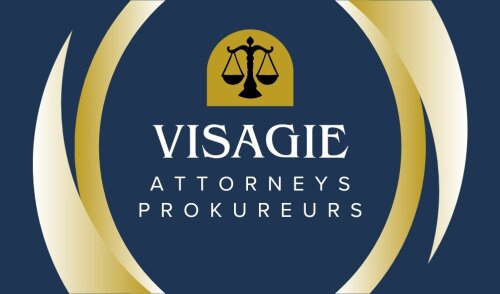Best Labor Law Lawyers in Rustenburg
Share your needs with us, get contacted by law firms.
Free. Takes 2 min.
List of the best lawyers in Rustenburg, South Africa
About Labor Law in Rustenburg, South Africa
Labor law in Rustenburg, like the rest of South Africa, is primarily governed by national legislation designed to safeguard the rights and responsibilities of both employers and employees. The main legislative framework includes the Basic Conditions of Employment Act (BCEA), Labour Relations Act (LRA), and the Employment Equity Act (EEA). These laws are enforced to ensure fair working conditions, prevent workplace discrimination, and manage industrial relations. With Rustenburg being a key mining hub, labor law also intersects significantly with industry-specific regulations that may affect employment practices in the area.
Why You May Need a Lawyer
Legal issues in the field of labor law can arise from several scenarios, including but not limited to: unfair dismissal, discrimination in the workplace, disputes over employment contracts, unfair labor practices, issues related to workplace safety, or wage disputes. If you're an employer, you might require guidance on maintaining compliance with labor laws or representing your business in negotiations with labor unions. On the other hand, employees might seek legal advice to challenge unfair treatment, negotiate employment terms, or address grievances.
Local Laws Overview
While labor laws in Rustenburg are governed by national laws, certain local considerations are crucial. The mining industry's prevalence influences labor relations, where regulatory compliance is necessary, especially concerning health and safety standards. The Labour Relations Act enforces fair procedures for strikes and disputes, which are common in sectors with strong union presence. The Department of Employment and Labour routinely inspects mining operations to ensure compliance with local standards and regulations.
Frequently Asked Questions
What is the maximum number of working hours per week according to South African labor law?
The Basic Conditions of Employment Act stipulates that employees may not work more than 45 hours per week. Any work beyond this is considered overtime and subject to additional pay.
What are the minimum requirements for a valid employment contract?
An employment contract should include details of the job description, pay, working hours, leave entitlement, and notice period for termination. It must comply with both company policies and legal standards.
How is unfair dismissal defined?
Unfair dismissal occurs when an employee is terminated without a fair reason or without following a fair procedure, such as a proper disciplinary hearing.
What actions can be taken if an employer is not complying with safety regulations?
Complaints can be lodged with the Department of Employment and Labour, who can enforce compliance and penalize companies that fail to adhere to safety norms.
How should disputes between unions and employers typically be resolved?
Disputes are often resolved through negotiations, mediation, or arbitration, as outlined by the Labour Relations Act. If unresolved, the matter can be referred to the Commission for Conciliation, Mediation, and Arbitration (CCMA).
What protections are in place against workplace discrimination?
The Employment Equity Act prohibits unfair discrimination against employees on the basis of race, gender, disability, and other protected characteristics. Complaints can be filed with both the CCMA and the Labour Court.
How does severance pay work in the event of retrenchment?
Employees are entitled to severance pay if retrenched, equivalent to at least one week’s remuneration for each completed year of continuous service with the employer.
Can part-time employees receive the same benefits as full-time employees?
Part-time employees are generally entitled to similar benefits as full-time employees on a pro-rata basis, provided they comply with the eligibility requirements outlined in their contracts.
What is a "probation period" and what are its implications?
A probation period is a trial period at the start of employment allowing the employer to assess new employees' performance. During this period, an employee can be dismissed with a shortened notice period.
Is it mandatory for employers to provide medical aid benefits?
While not legally mandatory, many employers offer medical aid benefits as part of their employee welfare initiatives. Employment contracts often clarify the terms and conditions related to these benefits.
Additional Resources
For more information or assistance on labor law matters, you can contact the Department of Employment and Labour, refer to guidelines from the Commission for Conciliation, Mediation, and Arbitration (CCMA), or consult with local legal aid offices in Rustenburg. Organizations such as the South African Federation of Trade Unions (SAFTU) and the Minerals Council South Africa also provide resources specific to the mining industry.
Next Steps
If you require legal assistance in labor law, consider consulting with a reputable labor attorney in Rustenburg who can offer personalized advice and representation based on your specific circumstances. Check testimonials and reviews to find a well-suited professional. Alternatively, you can visit legal clinics or approach the local offices of the CCMA for guidance. It's crucial to act swiftly, especially in cases of disputes or potential rights violations, to ensure a timely resolution.
Lawzana helps you find the best lawyers and law firms in Rustenburg through a curated and pre-screened list of qualified legal professionals. Our platform offers rankings and detailed profiles of attorneys and law firms, allowing you to compare based on practice areas, including Labor Law, experience, and client feedback.
Each profile includes a description of the firm's areas of practice, client reviews, team members and partners, year of establishment, spoken languages, office locations, contact information, social media presence, and any published articles or resources. Most firms on our platform speak English and are experienced in both local and international legal matters.
Get a quote from top-rated law firms in Rustenburg, South Africa — quickly, securely, and without unnecessary hassle.
Disclaimer:
The information provided on this page is for general informational purposes only and does not constitute legal advice. While we strive to ensure the accuracy and relevance of the content, legal information may change over time, and interpretations of the law can vary. You should always consult with a qualified legal professional for advice specific to your situation.
We disclaim all liability for actions taken or not taken based on the content of this page. If you believe any information is incorrect or outdated, please contact us, and we will review and update it where appropriate.











